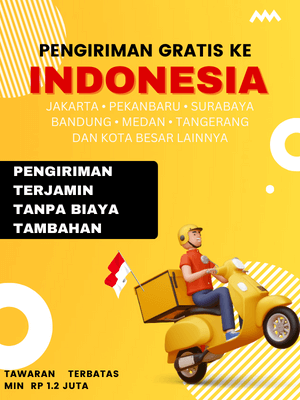MENA QIC InsurTech Hackathon — Leveraging Personal Data for Health, Mobility and Insurance Apps

The future of services is personal and individualized, where AI dominates and weaves through everyday life. Yet challenges remain to guarantee the privacy and individual value creation, as opposed to enterprise monopolies around data.
We were fortunate to partner on the first MENA Insurtech Hackathon with organizers Qatar Insurance Company (QIC) and Deloitte, Google, Anthemis, and PlugAndPlay. The hackathon saw nearly 150 teams compete for six finalist positions in showcasing innovative companies and products for the future in health, mobility and insurance. The winners DoctorOnCall (Growth Track) and Avey (Venture Track) both focused on data and AI driven intelligent and individual-focused health solutions and we are excited to continue working with them at Prifina beyond the hackathon victories.
Data, the key to AI and competitiveness
Led by Dr. Mohammad Hammoud, Avey harnesses AI-based diagnostics and matching to best-qualified service providers for specific conditions. Avey also won the popular vote leveraging a strong consumer appeal for a more modern way of interacting with health care providers and more direct access to the right specialists. It is easy to see how AI services like Avey will become prevalent in the future, but how we guarantee alignment with individuals long-term remains a crucial question.
Deep learning is a series of methods wherein a machine learning model is trained on vast data sets in order to, for example, identify patterns. This process can often be supervised, semi-supervised or unsupervised. In the case of unsupervised models, the process can be somewhat exploratory, first setting the algorithm free to mine the data to find valuable models that can later be turned into products.
Deep learning, in particular, often relies on highly centralized databases requiring a vast data set to be collected by, for example, a company. In the case of health care, this data set is particularly troubling where data is siloed and centralized, given how sensitive and vast it becomes. Decentralizing data sets and developing new methods for training learning algorithms is an exciting field. Yet, it is still highly nascent in cases where the most advanced support exists for supervised machine learning, such as federated learning models.
Individualized solutions required
DoctorOnCall is a Malaysia-based company that deservedly won the growth track of the Hackathon. DoctorOnCall has developed an impressive regional ecosystem of individuals, providers, and partners to serve individualized health care services for consumers. The company has nearly 1 million users and significant commercial milestones under its belt.
We were privileged to join Manar Virumandi (the co-founder and managing director of DoctorOnCall) on our fireside chat “Building Data-Driven Health Ecosystems”. In this fire chat discussion, we discussed the role that data plays in delivering accurate and reliable health care services, the challenges of working with complex data sets in different formats and silos, and the accompanying interests of incumbent companies in the health market. For example, did you know that if you have your DNA sequenced at a health care company as part of some procedure, you will likely not be able to acquire that DNA sequencing data yourself, even though it is your legal right under EU regulations such as GDPR?
“We ran a couple of exercises on Prifina’s platform, and overall experience of using data was very simple. Prifina’s model allows us to go beyond those siloed data walls; with Prifina, we can use the data from various data sources and come with a dashboard and clear insights that are much more practical to the consumers and medical providers. With this user-held data model, we can provide a lot of value of the patients.” — Maran Virumandi (DoctorOnCall)
Clearly, personalized AI is a key to individualized services, but the alignment of interests matters greatly. How do we ensure that AI is representing us? For example, imagine an AI service looking after your walking and running habits (cadence, foot angle, tilt, percentage of time spent on each leg etc.), and using it to help you decide what shoes are the best for you. Would you trust it if it were marketed and sold by Nike? We discussed how individuals need to be able to exercise more power over services to ensure they indeed work for our own long-term best interests and vast opportunities for app developers to build truly individualized applications that work for the individuals interests.
Afterward, we had discussions with various experts in the InsurTech and health and wellness markets. They noted the parallel to ESGs, where investors are now putting a lot of pressure on companies to find long-term alignment with the sustainable development goals. The expectation is that the same will be demanded of companies with regard to how they work with data. Providing your consumers a choice for how they utilize applications (privately or on the enterprise’s server) can be a competitive advantage and even a vast risk in the future.
Privacy concerns real, privacy ≠ private
On our fireside chat, we asked the audience if they would be willing to share their anonymized DNA data for research purposes. Further, we asked if they’d be willing to share it for content recommendations? Alternatively, would they be willing to share it for research purposes with a Pharma company or a university research group?
Context and situations matter greatly, and willingness to share data is a spectrum. And to be fair, there are many applications where sharing data is not warranted, and the apps could (maybe should) run privately without any sharing. At the same time, going to the doctor for knee pain and, when asked where it hurts, refusing privacy concerns — is just not going to work.
At the very least, consumers should be given a choice, a simple and actionable choice: do you want to share your data or use the app privately? We do not have the option today. However, at Prifina, we believe that individualized AI requires that choice to be present. Even further, we believe in individual representation and agency; otherwise, delivering the vision of a genuinely individualized set of AI seems to be out of reach.
Mohammad from Avey said it well on the panel:
“AI can be used for different goals, good or bad. It is our choice to ensure we make the right long term choices for individuals all across the world.”










